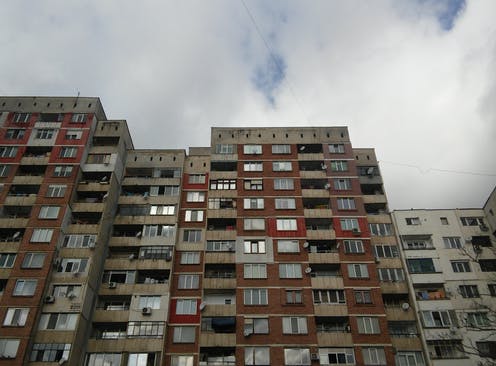Deljana Iossifova, Author provided
Maria is 84. Now that she can no longer move as easily, she spends most of her time in the kitchen of the two-bedroom flat she shares with her adult son, his wife and their two teenage daughters. She sits on the sofa-bed for most of the day.
She used to spend the summer months in the Balkans in a small village where they had a house. There, she worked in the garden, grew fruit and vegetables. When she returned to the city with the onset of winter, she used to bring back jars of pickles and preserves to help feed the family.
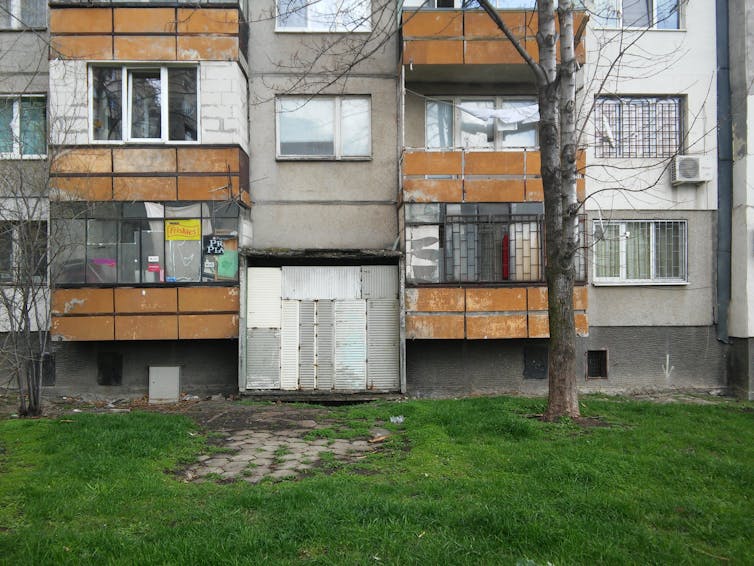
author provided
A few years ago, when Maria’s grandsons were born in England, she had been called to Bristol to help out so her daughter could go back to work quickly. They go to school now, so her help is no longer needed. Now she waits for her pension to arrive so that she can help with the energy bills and for her son and daughter-in-law to find work so that she can buy the medicine she needs. She says she aims not to be a burden.
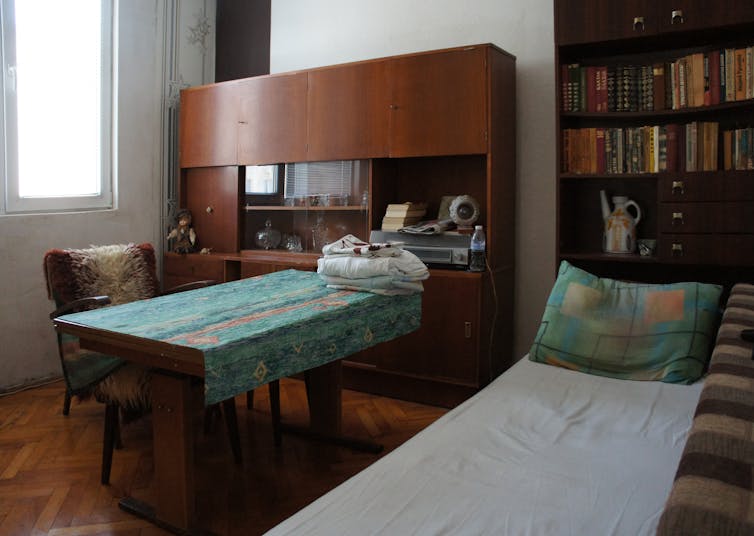
author provided
Bulgaria is on the margins of Europe, it is one of the poorest member states of the EU. Following 45 years of communist rule, the country was released into the free market in 1989 and has since been undergoing a series of dramatic transitions, each of which has had consequences for generations of Bulgarians. In this context, Maria’s story is not unique. In fact, it is one of the most common stories I heard when researching my book Translocal Ageing in the Global East: Bulgaria’s Abandoned Elderly.
The state safety net
In Bulgaria, older people had their lives shaped by the rise and fall of the communist era between 1944 and 1989. The idea that the state would take care of everyone and everything was formative for many of them as they grew up. Now, as they grow old, they find that is not the case.
This is not the only way the communist state has shaped their lives. They were, for example, given jobs and homes in cities but encouraged to retain close ties with the villages of their ancestors. This strategy had several advantages: for one, urbanites had the opportunity to get away from the city easily and breathe the fresh air of Bulgaria’s mountains and valleys. More importantly, they could help bring in the crops from the fields – and take bags full of produce, such as chickens and eggs, bacon, cheese and canned goods, back to the city. This would include specialities not easily found in stores as well as staple foods, which often helped families in the city cope with ubiquitous supply shortages under the planned economy.
Women were fully integrated into the socialist workforce. They could enjoy some of the world’s longest maternity leave without having to worry about the security of their jobs. Once they returned to work, their children were looked after in nurseries and kindergartens provided by the state. An early retirement age also meant that generations of grandparents could devote their time to looking after grandchildren – in exchange for the security of being looked after by adult children and grandchildren in old age.
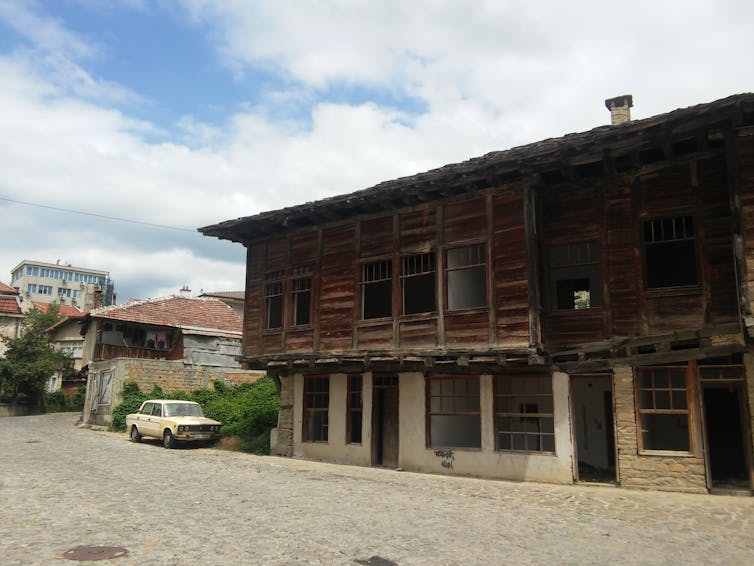
author provided
Transitioning to neglect
Everything changed with the fall of communism and the onset of the transition era, which began in 1990. State-owned businesses closed or were sold off. Villages were left behind as younger people looked for livelihoods in cities. In turn, cities lost their populations to destinations abroad. Younger people fled the country for the greener pastures of the west, and only a few of them returned. Fertility rates dwindled in the face of uncertainty, contributing to some of the most rapid population ageing in the world. The inability of Bulgaria’s leadership to respond appropriately to political and economic change is mirrored in unemployment rates that are far higher than the European average. After 13 years as a member state of the EU, almost 35% of those over 65 in Bulgaria are at risk of poverty.
Today’s older people are bearing the burden of decades of political mismanagement, out-migration and austerity. They have to make do with meagre pensions and often keep track of every penny spent. Many take up post-retirement jobs when they cannot manage to make ends meet. They have to adapt and mend the tattered homes of the socialist era to keep them habitable – a task that is particularly difficult during the winter months, when turning on the heating is tempting but not an option due to the exorbitant cost of energy in cities.
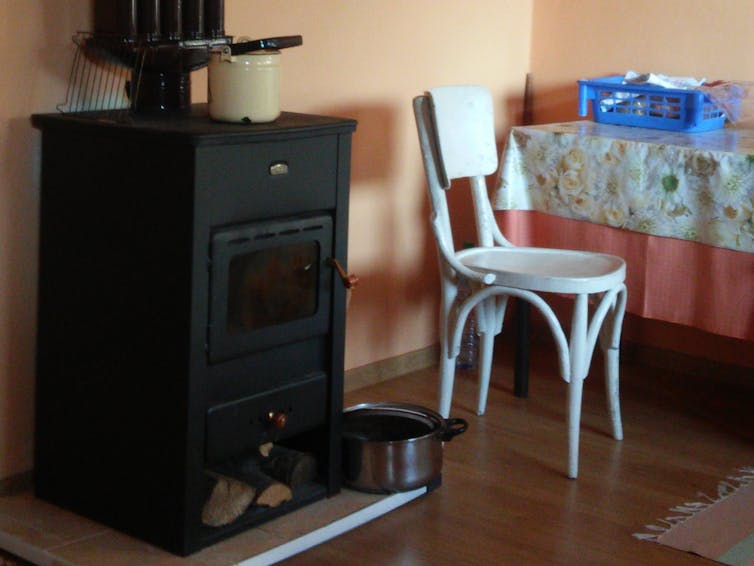
author provided
In the face of sometimes unimaginable hardship, Bulgaria’s older people in cities and in villages have shaken off any remaining expectations of the state. They have had to find their own ways to adapt. Perhaps a more positive legacy of the socialist way of life has been that travelling between places to live and work is the norm for this generation. They think little of travelling abroad to help out with grandchildren, as Maria did.
Living in this way, ageing across multiple locations in and outside Bulgaria is a common approach to coping with the burdens of ageing for a generation raised by one kind of state and abandoned by another.
![]()
Deljana Iossifova does not work for, consult, own shares in or receive funding from any company or organization that would benefit from this article, and has disclosed no relevant affiliations beyond their academic appointment.











